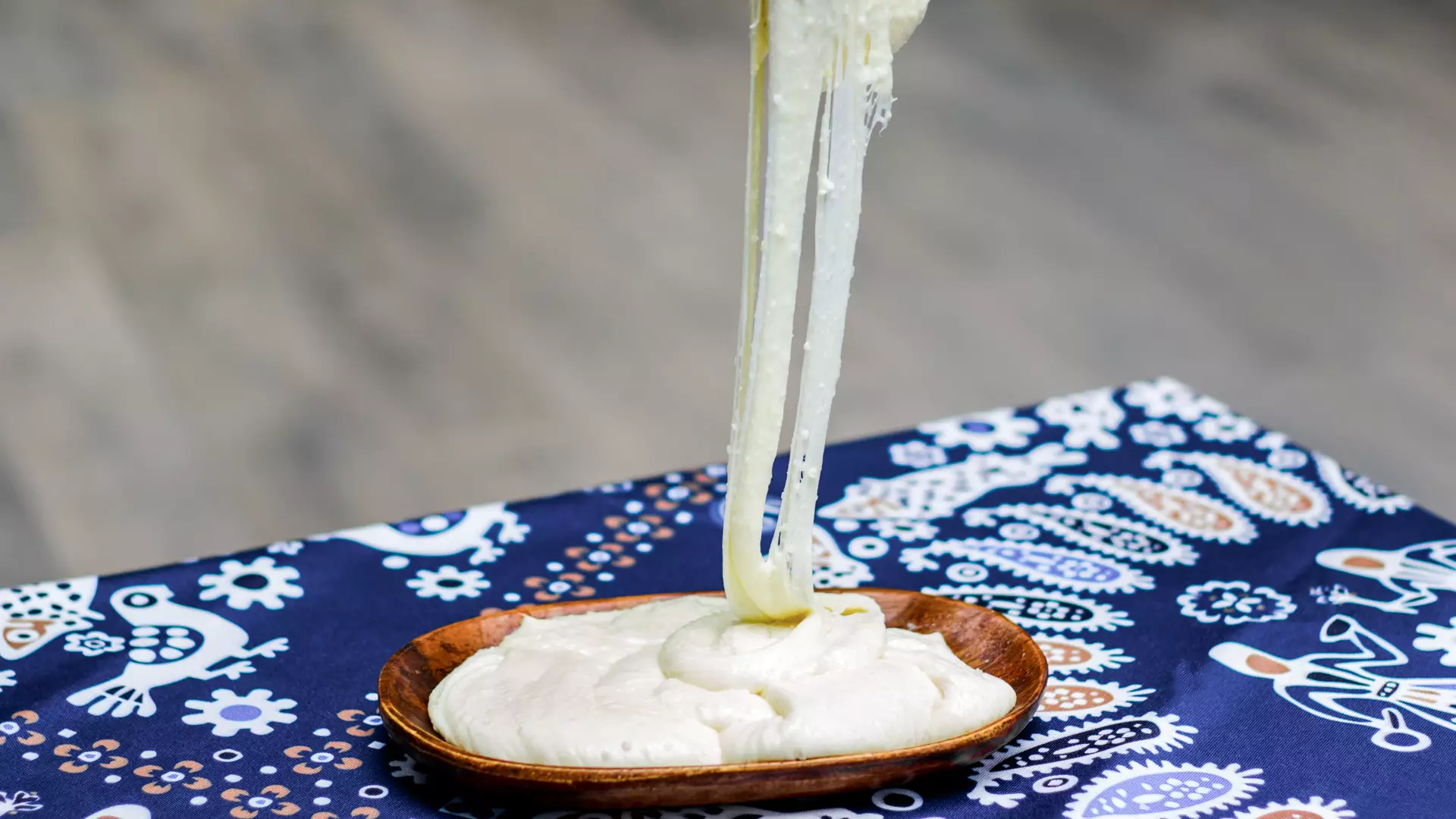Elarji
A Story about Elarji
The legend says that elarji’s creation was an accident. Shepherds, who would stay with their herds for months at a time in the mountainous area of Samegrelo, are said to have first made the dish.
These shepherds must have had ground cornmeal with them and, when they milked the cows, they would make cheese and boil it into well-kneaded ghomi (a kind of grits made from cornmeal) over a low flame. This created elarji, a shared meal mashed directly from the pot and onto a wide platter to spread across its whole surface. It would then be cut into equal-sized pieces and served with semi-sweet Ojaleshi wine.
The Best Elarji
This masterpiece of Megrelian cuisine is made of only two ingredients: finely ground cornmeal and cheese, but making it is not as easy as it might sound. If you don’t pay attention to the little nuances, you won’t get the right taste, so a Megrelian hostess’ number one piece of advice is to buy finely ground cornmeal, rather than trying to produce it yourself. It is true that cornmeal is harder to wash, but coarsely ground cornmeal doesn’t give you the best elarji.
How to Prepare Elarji
The traditional recipe for elarji is very short.
-
1 kg cornmeal
-
200 g corn flour
-
1.5 kg newly ripe elarji cheese or very fresh sulguni
Directions
-
Wash the cornmeal carefully to remove all the black bits.
-
Place it over a high flame, preferably in a cast-iron pot, stirring from time to time, so the congealed mass does not stick or separate.
-
After 30-40 minutes, the cornmeal should have become like porridge. It should be uniform and stretchy, not too thick and not too thin. In general, it is this balancing act that is a major determiner of the quality of the elarji. It is said that the perfect elarji must have an equal mass of cheese and ghomi.
-
Once the ghomi porridge has begun to boil, add the corn flour slowly and continue to mix it.
-
When it is once again uniform, let it sit over a low flame for 10-15 more minutes and then gradually add thin strips of cheese. Here is when patience, strength, and determination are needed, because the cheese has to be completely kneaded into the ghomi.
-
Leave the finished elarji on a low flame for two or three more minutes, then start separating it onto plates. Make sure to wet your wooden spoon in cold water periodically when doing this.
Some Megrelian cooks will advise you to add seasoned cream cheese onto the elarji on the plate, or to offer it on the side.
Abkhazian Elarji
The Abkhazian elarji called “chemkva” is worthy of a separate mention.
The main feature of this version of the popular dish is its white colour. Unlike Megrelian elarji, Abkhazian elarji is made solely from corn flour boiled in milk, with newly ripened cheese layered into it.
Once it has been well-roasted, the chemkva is moved to a plate, where it is rolled up like pastry with wet hands. It is then eaten alone or with honeyed matsoni.
Variants of Elarji
In modern cuisine, elarji balls are often seen with an almond sauce called bazhe, since the combination of elarji and bazhe is exceptionally good.
For this variety of elarji you will need:
-
500 g cornmeal
-
500 g smoked sulguni
-
800 g sulguni
-
300 g flour
-
5 eggs
-
200 g panko breadcrumbs
For the almond bazhe you will need:
-
300 g shelled and minced almonds
-
1 tsp red curry paste
-
1 tsp Svan salt
-
½ tsp dried coriander
-
½ tsp saffron
-
200 g boiled water
Directions
-
Blend the bazhe ingredients to the consistency of a sauce and keep them in the refrigerator.
-
Prepare the elarji with both kinds of cheese. Then put it into a low bowl and, once it has cooled off, shape it into 30 to 35-gram balls.
-
Roll the balls first with flour, then with the eggs and breadcrumbs.
-
Cool them down, then deep-fry them at 180 degrees or in a pot filled with oil for 5 to 7 minutes.
-
Make sure to bring them to the table along with the bazhe sauce.
Cookie Policy

